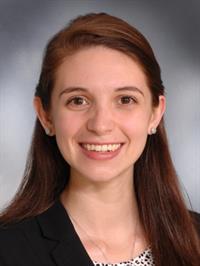Medical Student Spotlight: Chelsey Miller
Chelsey Miller graduated from Miami University in the spring of 2019. She was an English Literature major, had the Pre-Medical Studies co-major, and had a Women’s, Gender, and Sexualities Studies Minor. She is now a fourth-year medical student at the University of Cincinnati College of Medicine.
